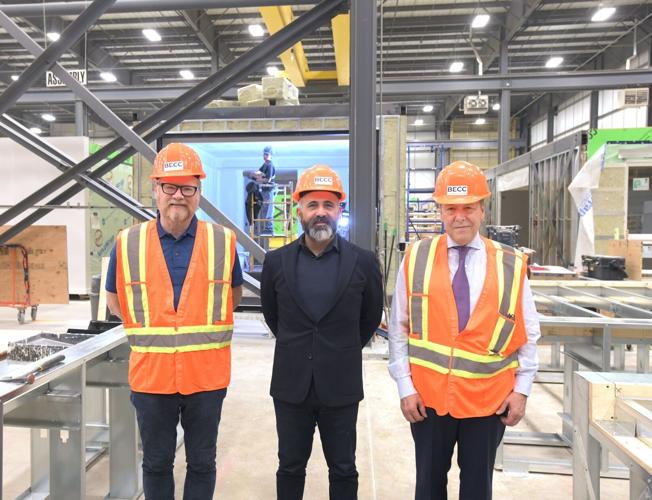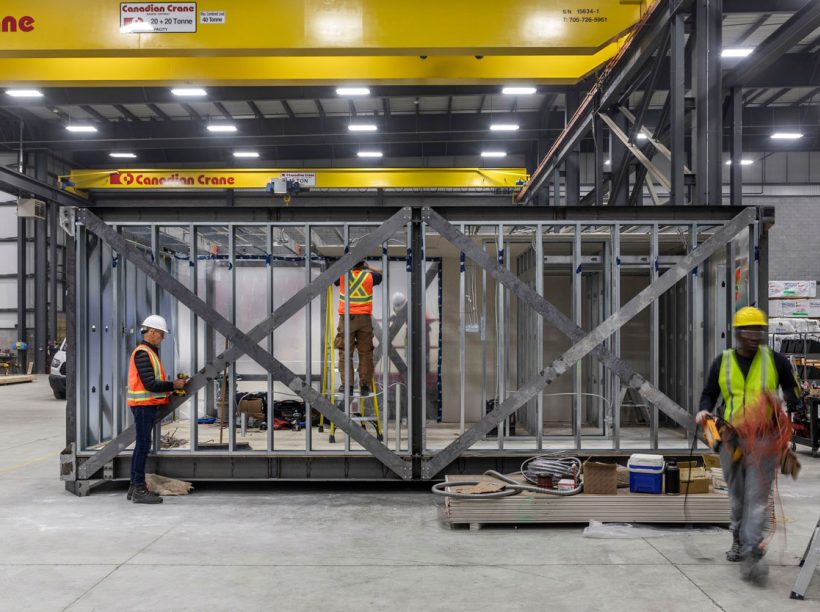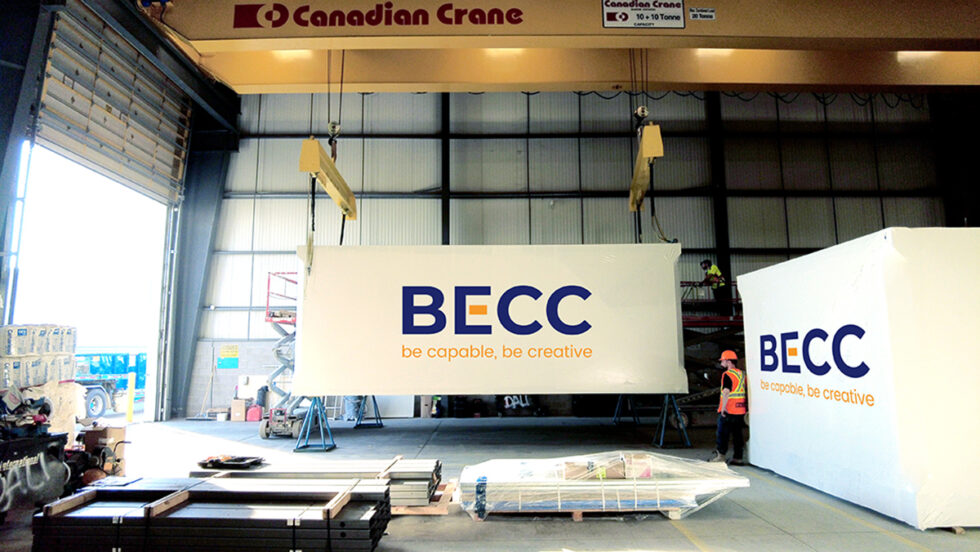Ali Ozden, CEO of BECC Modular, remembers the moment his company’s path changed. At the height of the COVID-19 pandemic, traditional construction was under strain and demand for housing and educational space was growing rapidly across North America.


“We saw an urgent and growing need for housing and educational space across North America,” said Ozden. “At the same time, skilled labour shortages were impacting traditional construction timelines and costs. These challenges inspired us to pivot toward modular construction, a more efficient and scalable approach to delivering high-quality buildings. This strategic shift gave birth to BECC Modular.”
Based in Ancaster, ON, BECC Modular designs and manufactures modular buildings made of cold-formed steel. With up to 90 per cent of the work completed off-site in a CSA A277-certified facility, their method cuts timelines, emissions and costs. Their modular units are used across sectors, including housing, health care, education and hospitality.
As the company built its presence in Canada, the team began planning for international growth. “Before joining TAP, our primary goal was to develop a structured, informed strategy for entering international markets—particularly the U.S.,” said Ozden. “We recognized the need for deeper insights, practical guidance and expert mentorship to position ourselves competitively beyond Canada.”
But expanding globally brought new challenges. “One of our main challenges was our limited experience navigating export markets, particularly the regulatory, logistical and cultural differences in the U.S. We also needed to refine our value proposition and operational model to scale globally.”

Support Through the Trade Accelerator Program (TAP)
The Trade Accelerator Program (TAP), delivered by the Toronto Region Board of Trade, offered a way forward. “TAP provided a clear framework for international expansion,” Ozden said. “The program gave us access to seasoned professionals, real-world case studies and valuable peer discussions. It helped us sharpen our strategy, refine our messaging and understand how to align our operations with international standards.”
The lessons gained during the program were lasting. “One key insight that has stayed with us is the importance of thorough market research and the value of strategic partnerships,” he said. “TAP also reinforced the importance of being agile—adapting quickly to shifting market conditions and customer needs without losing sight of our long-term vision.”
Since completing TAP, BECC has opened a sales office in California, manufactured a full hotel project at its Ancaster facility and shipped 67 luxury, self-contained suites to Joshua Tree Park. “These projects have affirmed both our capabilities and the demand for our modular solutions in international markets,” said Ozden.
Confidence and Risk Mitigation with EDC
Export Development Canada (EDC) also supported BECC’s journey. “EDC played an essential role by providing tools, guidance and confidence as we expanded abroad,” he said. “Their expertise helped us mitigate risk, better understand the U.S. market and unlock new opportunities for growth.”

Looking ahead, BECC is focused on developing new modular product lines focused on luxury and sustainable living, and on growing its presence across North America.
“On behalf of the entire team at BECC Modular, I’d like to thank the Toronto Region Board of Trade and extend our warmest congratulations to TAP on its 10-year anniversary. We are deeply appreciative of the program’s impact on our journey.”



